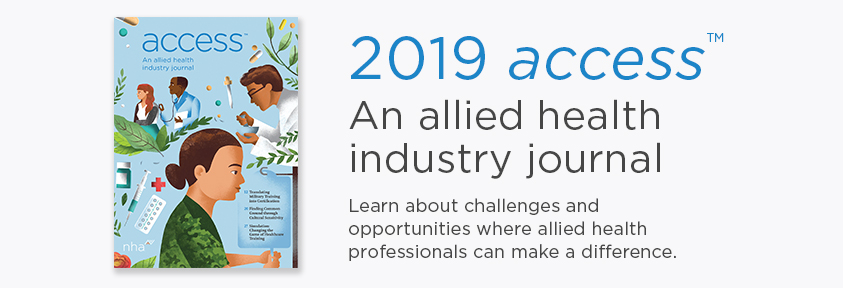Since January, I have traveled across the country with a single mission: to unite educators and employers for the purpose of developing the best medical assistants (CCMA) together. Many of you read my prior article, “My New Year’s Un-Resolution: How it can benefit the healthcare industry”, so you know that I am passionate about this topic and I feel an enormous obligation to help advocate for the medical assistant profession. Here’s what I’ve learned so far in 2019…
Medical Assistants’ Esteem
Because of their interaction with patients, medical assistants are many times automatically assumed to be a physician or nurse by most patients. This assumption can lead MAs to feel like a mammoth responsibility has been put on them. As educators and employers we must continue to help them over deliver on each patient’s expectations and experiences through the strong development of soft skills since they cannot provide a clinical diagnosis.
On top of public perception, physicians continually state that they cannot do their jobs well without the support of qualified and experienced medical assistants. Needless to say, it’s hard to find someone in the healthcare industry who doesn’t agree that medical assistants are one of the most valued roles on the care team.
Calling All Educational Institutions – We Need More MA Graduates!
Given the nationwide shortage of medical assistants, employers need more MA program graduates. If you are an educational institution, consider placing a strategic focus on growing your MA program or starting a new program.
Help your candidates stand out by teaching them the clinical skills required, but also by instilling a high regard for interpersonal skills and patient communication. Very early in 2020, NHA will have a product that can support you and your learners with developing these skills through simulation experiences.
Recommended Steps for Employers – Increase MA Applicants and Retention Rates
The U.S. Bureau of Labor Statistics projects that the MA profession will grow at 22.5%through 2026, high above the average growth rate of all U.S. occupations. HR departments recommend re-evaluating current job descriptions. Do the MA job descriptions clearly state acceptance of all NCCA accredited certifications including NHA’s CCMA credential? If not, make updates as soon as possible. Your job descriptions could be steering highly qualified MA graduates away from applying with your organization.
Take time to show your MAs how much you appreciate their work by investing in creating a career path for them. Check out the example below.

I want to hear from you!
Are you a medical assistant, MA educator or MA employer? Share this article or comment on how you are advocating for the profession and stay tuned for more updates regarding learning from my un-resolution for the remainder of the year.




